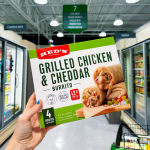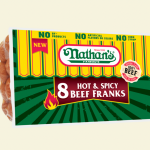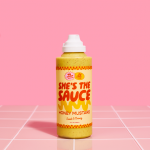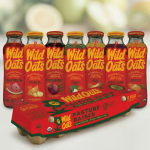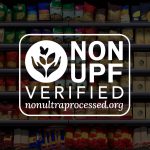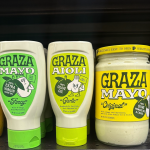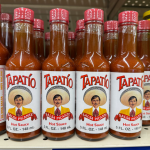Six Questions With Formaggio Kitchen’s Julia Hallman
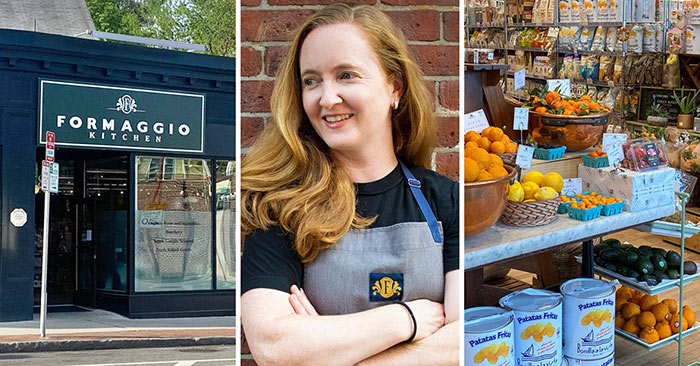
Cambridge, Mass-based Formaggio Kitchen has been providing specialty and imported goods to the Boston area since 1978. As the store expanded beyond its flagship location it has also brought a range of new products and categories into its mix. When it came time for original owners Ihsan and Valerie Gurdal to retire last year, they sold the business to long-time employee and general manager, Julia Hallman.
We recently caught up with Hallman to hear her take on the role specialty stores like hers play in the broader retail landscape, including her thoughts on independent retail’s role in a brand’s growth trajectory, how she’s helped the store navigate an evolution of new challenges, what makes a brand successful in the channel and why South American and Southeast Asian products will increasingly garner interest from consumers as we look to the year ahead. This conversation has been edited for clarity and space.
What role does Formaggio Kitchen play in an emerging brand’s growth and what impact does it have on broader food and flavor trends?
Formaggio Kitchen has a unique role for emerging brands because of the reputation that we have built over the past 40+ years. We are extraordinarily selective in the products that we bring into the shop and because of this, new brands that end up on our shelves often get a bit of a boost after we feature them. I believe that the key to influencing new food and flavor trends is to not focus on the trend itself. Our focus has always been on what excites us – products that we are thrilled to share with our customers. Oftentimes these quickly become a food trend, but we never seek them out with that intent.
How do the challenges of independent retail compare to those when you first joined the company over a decade ago?
We’ve always tried to stay true to our values of seeking out rare and exceptional artisan food, so in the most basic sense, our challenges in sourcing are not new. However, since the COVID-19 pandemic we have seen a greater difficulty in importing, logistics, and cost of goods increasing which has posed its own set of unique challenges. That being said, a hallmark of how we operate is based on a fundamental “can do,” small business attitude which allows us to pivot when needed and adapt to the changing environment. As long as we continue to maintain our adaptability to industry challenges, we’ll keep trucking along.
How has inflation impacted Formaggio’s business?
We’ve seen some of the biggest increases in some of the basics, such as eggs, which obviously has a big trickle down effect. That being said, by working primarily with smaller producers they also tend to be more adaptable and have found workarounds to keep product costs as low as possible. As a retailer, I believe that we have handled inflation fairly well since we are constantly adjusting and working to keep our prices as low as possible for our customers. A good deal of what we do is import-based, so we are lucky in the fact that the dollar has become so strong which has offset some of the inflationary price increases. The key is to have a small-business mentality and try to lower costs where you can – such as packaging materials or paper goods – so that our customers don’t end up with the bulk of the burden.
How are you thinking about building sets or finding store placements for emerging categories? What are some top trends you are on the lookout for in 2023?
For us, this is the fun part. A huge part of what we do is customer education, whether in-house classes, demos, displays, or clear signage. We are lucky to have an extremely engaged customer base that actively wants to learn – as long as we put the information out there in a clear and concise way, it is always a home run. We are also excited to explore more South American and Southeast Asian products and companies this year – again, thinking less about trends and more about finding foods that excite us.
What makes a brand or product successful? Are there consistent issues or mistakes that you see brands repeatedly make?
Loyalty is what makes or breaks a brand. When we run out of a product, does the customer settle for another brand or would they rather go without? Oftentimes brands think too much about growth and not enough about maintaining customer loyalty. Too often we see brands quickly change their packaging and branch out with many new flavors and product types. What they don’t realize is that once they have loyalty, they can release a new product and their customer base won’t hesitate to try it out. Slow and steady is not a mantra you often hear in business, but sometimes moving too fast with too much change can turn off your best customers.
According to SPINS, plant-based snacks, proteins and dairy alternatives have really grown in specialty this past year – have you seen similar demand in your store?
Even as a cheese shop, we have seen a growing interest in dairy alternatives. Again, we don’t stray too far from who we are – we focus on the best and most exciting products that we can find. Dairy alternatives have their place in the culinary world, so we seek to find our favorites not as a way to shun dairy or tout any health benefits, but rather to highlight the best of the best in this category.
